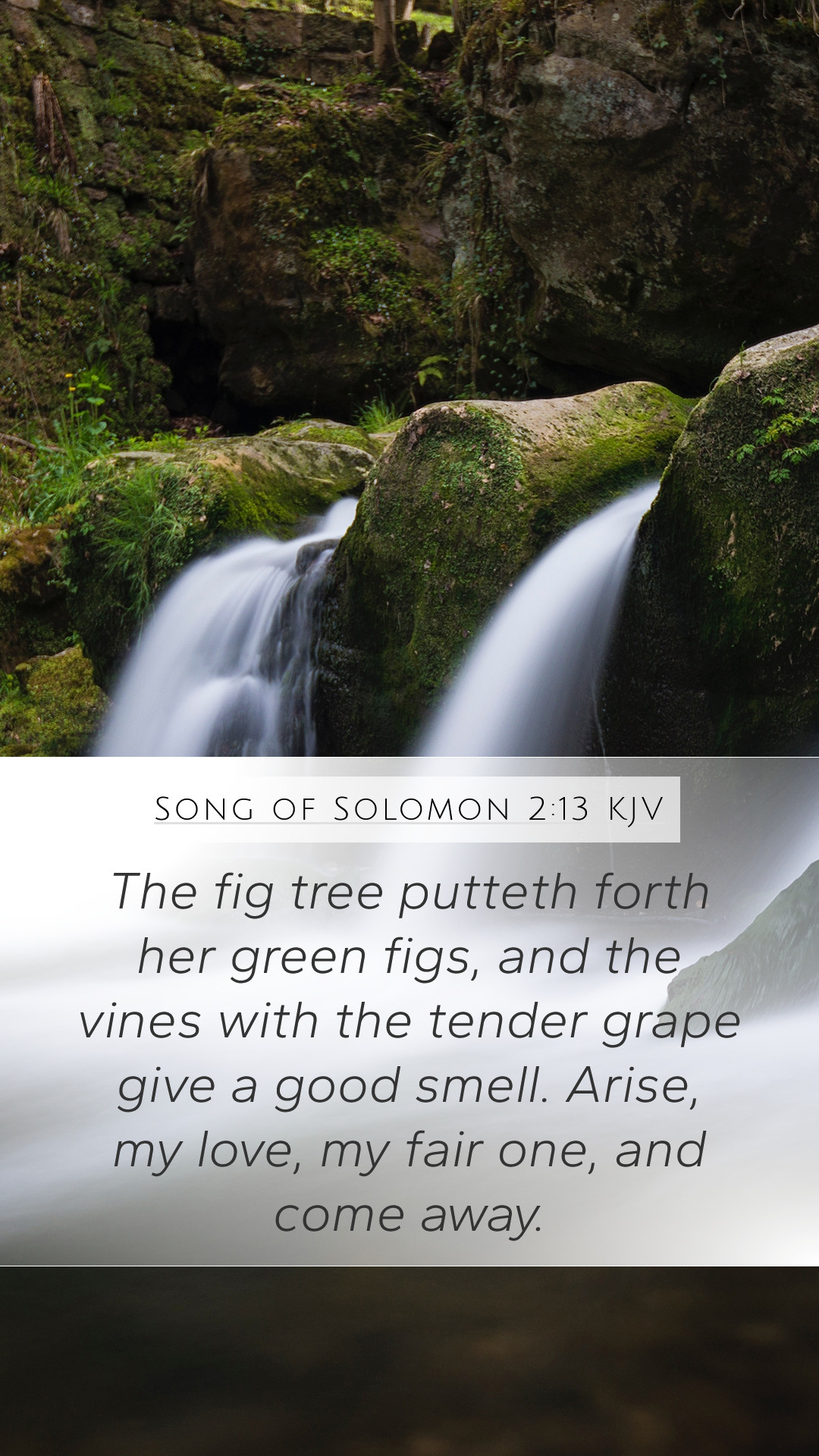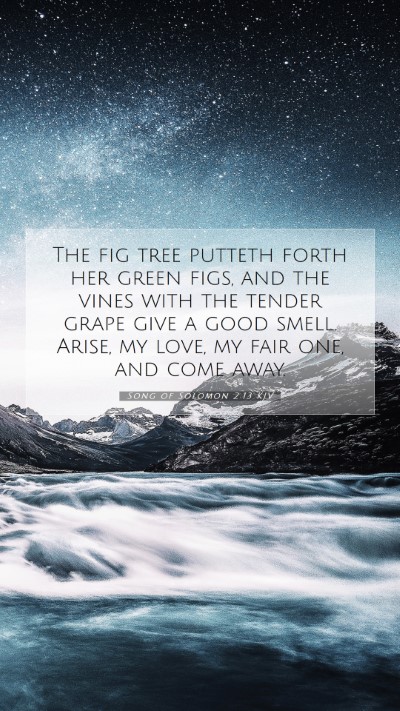Understanding Song of Solomon 2:13
Song of Solomon 2:13 states: "The fig tree puts forth her green figs, and the vines with the tender grapes give a good smell. Arise, my love, my fair one, and come away." This verse is rich in meaning, metaphor, and significance, inviting deeper exploration and understanding through various lenses.
Bible Verse Meanings
This verse serves not only as a poetic expression of love but also as a reflection of the natural world that speaks to the beauty of relationship and desire. Here, the fig tree and the vines are symbols of fertility and abundance, suggesting the time for love is ripe, paralleling the blooming of nature.
Contextual Analysis
The Song of Solomon, traditionally attributed to King Solomon, is a unique book in both its literary style and its content. It is often viewed as an allegorical representation of God's love for His people, as well as an expression of romantic love between a bride and groom. Verse 2:13 specifically depicts a scene where nature is in bloom, indicating an invitation to enjoy love in its fullness.
Insights from Public Domain Commentaries
- Matthew Henry: Henry posits that this part of the Song emphasizes the sweet and mutual affection between lovers during a time of joyful growth and beauty. He interprets the fig and the vine as symbols of abundance and fruitful love, highlighting the importance of recognizing love as a dynamic, flourishing experience.
- Albert Barnes: Barnes elaborates on the metaphorical significance of the fig tree and the vines. He notes that the tender grapes signify the early stages of love, reflecting innocence and new beginnings. The call to "arise" signifies readiness to engage in that love and pursue it actively.
- Adam Clarke: Clarke connects the verses to the experience of divine love, suggesting that as the natural world awakens to beauty, so too should the heart awaken to the call of love—both human and divine. He emphasizes that the themes of longing and anticipation in the verse resonate with believers' longing for communion with God.
Key Themes and Symbolism
Several key themes emerge through this verse:
- Celebration of Nature: The blooming of the fig tree and grapevines serves as a reminder of nature's cycle and the beauty inherent in creation.
- Invitation to Love: The call to "arise" underscores the active choice to enter into experiences of love, making it a timely invitation.
- Unity and Togetherness: The emphasis on “my love” embodies closeness and intimacy, signaling the joy of companionship.
Application of This Verse
Understanding Song of Solomon 2:13 can provide valuable insights for personal application. It encourages believers to:
- Recognize the seasons of love in their lives, whether romantic or spiritual.
- Engage with the natural world as a source of inspiration and reflection of God’s love.
- Respond to God's call to deeper intimacy through prayer and connection.
Cross-References
This verse ties closely with several other biblical texts:
- Genesis 1:28: The mandate to be fruitful, reflecting God's intention for abundance.
- Isaiah 5:1-2: Imagery of a vineyard representing Israel, drawing connections between God’s love and the beauty of creation.
- John 15:5: Jesus as the true vine, emphasizing the importance of remaining in Him to bear fruit.
Conclusion
In essence, Song of Solomon 2:13 invites readers to engage deeply with both love and nature, encouraging a reflective examination of personal relationships as well as spiritual commitments. By exploring its meanings, interpretations, and applications, one can appreciate the richness of this biblical passage beyond its surface layers. Whether through personal study or in Bible study groups, this verse continues to illuminate the timeless nature of love and devotion.


